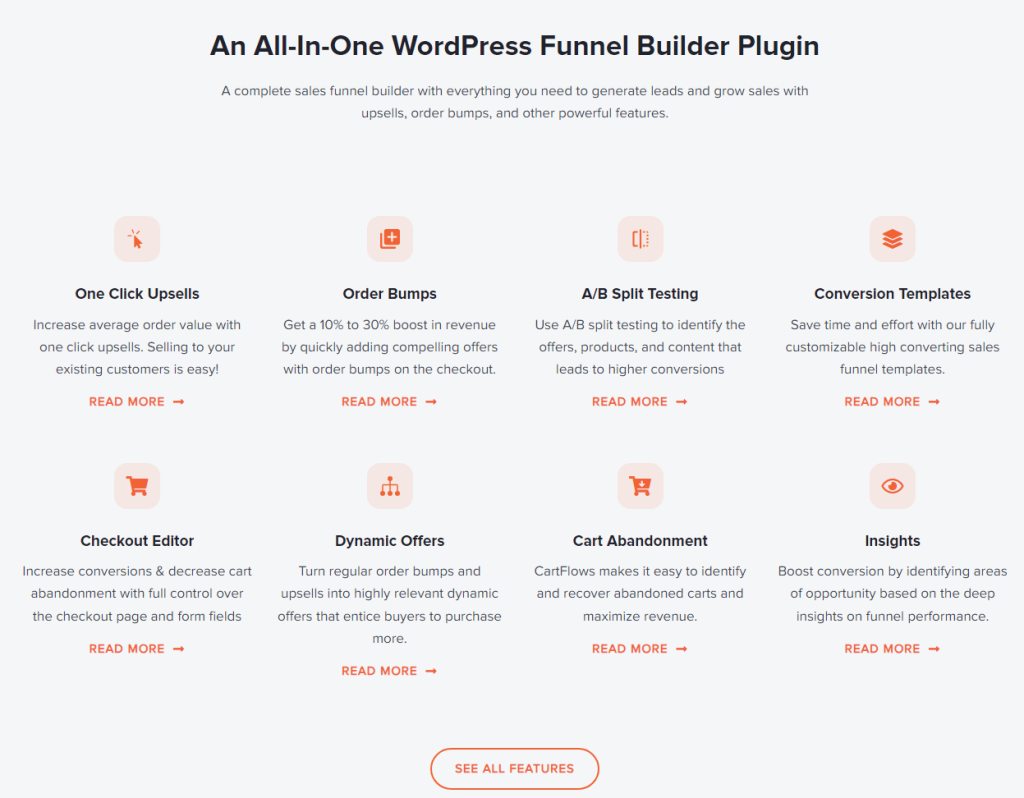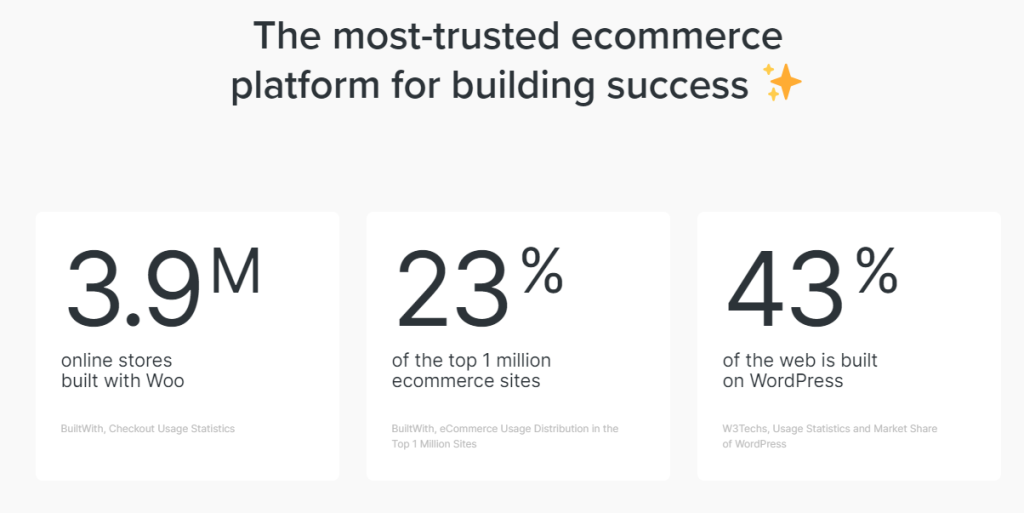If you’re selling products online, you’ll need a checkout reliable e-commerce platform to handle your online store. Two popular options are Cartflows and WooCommerce. Here’s what you need to know about each one.
CartFlows is a sales funnel builder designed for WooCommerce stores. It helps WooCommerce store owners sell more by creating custom checkout pages and upsell offers that encourage customers to make more purchases and increase revenue.
If you already have a WooCommerce store, then I would recommend SureCart (or for any WordPresss site E-Commmerce projects). I found WooCommerce to be overly complicated and not very intuitive. For sites not using WordPress, check out SamCart.
[lasso ref=”sell-digital-products-online-with-samcart-com” id=”2383″ link_id=”3291″]
Cartflows

Cartflows is a sales funnel builder designed for WooCommerce stores. It allows you to create custom checkout pages and upsell pages to increase your sales. Cartflows offers a range of features, including:
- Custom thank you pages
- One-click order bumps
- Unlimited upsells and downsells
- A/B testing
- Integration with popular payment gateways
Cartflows is easy to use and can help you create a professional checkout process that converts visitors into customers.
WooCommerce

WooCommerce is a popular eCommerce plugin for WordPress. It allows you to create an online store and sell products directly from your website. WooCommerce offers a range of features, including:
- Customizable product pages
- Product categories and tags
- Shipping options
- Tax settings
- Integration with popular payment gateways
WooCommerce is highly customizable and can be used to sell physical and digital products. It’s also free to use, although you may need to pay for additional extensions and add-ons.
Key Features Comparison
Here’s a breakdown of how Cartflows and WooCommerce compare in key features:
Sales Funnel Features
Cartflows is a sales funnel builder plugin that is designed specifically for WooCommerce stores. It allows you to create sales funnels that are optimized for conversions and customer engagement. WooCommerce, on the other hand, is a complete e-commerce solution that includes a shopping cart, checkout process, and order management system. While WooCommerce does allow you to create sales funnels, it doesn’t have the same level of optimization and customization options as Cartflows.
Checkout Experience
Cartflows offers a range of pre-built checkout templates that are optimized for conversions. You can choose from a variety of templates that include one-page, multi-step, and custom checkout pages. On top of that, Cartflows also allows you to add one-click upsells and downsells to your checkout process, which can help increase your average order value. WooCommerce also offers checkout templates, but they are not as optimized as the ones provided by Cartflows.
Product Display and Management
WooCommerce offers a range of product display and management options, including the ability to create product categories, tags, and attributes. You can also add product images, descriptions, and pricing options. Cartflows, on the other hand, does not offer any product display or management options. It is solely focused on creating optimized sales funnels.
Templates and Page Builders
Cartflows integrates with a range of WordPress page builders, including Elementor, Divi, Beaver Builder, Gutenberg, and the Astra theme. This allows you to create custom landing pages and sales funnel pages that are optimized for conversions. WooCommerce also offers templates, but they are not as optimized as the ones provided by Cartflows.
Analytics and Testing
Cartflows offers built-in analytics that allow you to track your sales funnel performance, including conversion rates, revenue, and customer behavior. Moreover, you can use A/B testing and split testing to optimize your sales funnel pages for better performance. WooCommerce also offers analytics, but they are not as comprehensive as the ones provided by Cartflows.
Upsells and Downsells
Cartflows allows you to create one-click upsells and downsells that can help increase your average order value. You can add these to your checkout process to offer customers additional products or services that complement their initial purchase. WooCommerce also offers upsells and downsells, but they are not as optimized as the ones provided by Cartflows.
Pricing Plans
CartFlows Pricing
Cartflows offers three pricing plans: Starter, Plus, and Pro. The Starter Plan costs $79 per year and includes features like different checkout methods, cart abandonment, and more. The Plus Plan costs $149 per year and includes more features like premium support, dynamic upsell templates, and more. If you want more advanced features, then you can upgrade to their Pro Plan, which costs $269 per year and comes with features like analytics, A/B split testing, and more.
WooCommerce Pricing
WooCommerce, on the other hand, is a free WordPress plugin that allows you to create an online store and sell products. However, there are several paid extensions and add-ons that you can purchase to add more functionality to your store.
Benefits of Using Cartflows and WooCommerce
When it comes to selling products online, having a smooth and efficient checkout process is crucial. This is where Cartflows and WooCommerce come in. By using these two powerful tools together, you can benefit from a range of features that will help you increase conversions, average order value (AOV), leads, and ultimately revenue.
One of the main benefits of using Cartflows and WooCommerce is their flexibility. With Cartflows, you can create custom checkout pages that match your brand and style, without any coding knowledge. You can also add order bumps, upsells, and downsells to your checkout process, which can increase your AOV and revenue. Additionally, Cartflows works with popular page builders for WordPress, so you won’t have to learn how to use a new product.
Another benefit of using Cartflows and WooCommerce is their powerful lead-generation capabilities. With Cartflows, you can create custom landing pages and funnels that are designed to convert visitors into leads. You can also add exit-intent popups and other lead capture forms to your website, which can help you grow your email list and generate more leads.
In terms of conversions, Cartflows and WooCommerce can help you increase your conversion rate by providing a seamless checkout process. With Cartflows, you can create a multi-step checkout process that guides your customers through the buying process, reducing cart abandonment and increasing conversions. You can also add trust badges, testimonials, and other social proof elements to your checkout pages, which can help build trust with your customers and increase conversions.
Use Cases and Applications
CartFlows and WooCommerce are both powerful tools that can be used for a variety of online businesses. Here are some common use cases and applications for each platform:
CartFlows
- Online courses: CartFlows can be used to sell online courses by creating a sales funnel that guides potential customers through the checkout process. The platform also integrates with popular learning management systems like LearnDash and LifterLMS.
- Coaches: If you’re a coach, you can use CartFlows to sell your coaching services. You can create a sales funnel that highlights your expertise, showcases your testimonials, and guides potential clients through the checkout process.
- Services: CartFlows can also be used to sell services like web design, copywriting, or consulting. You can create a sales funnel that outlines your services, showcases your portfolio, and guides potential clients through the checkout process.
- Insights: CartFlows includes built-in analytics that can help you track your sales funnel performance. You can see how many people are entering your funnel, where they’re dropping off, and how many are completing the checkout process.
WooCommerce
- Online courses: Like CartFlows, WooCommerce can be used to sell online courses. However, WooCommerce requires more customization to create a sales funnel that guides potential customers through the checkout process.
- Coaches: If you’re a coach, you can use WooCommerce to sell your coaching services. However, you’ll need to customize your checkout process to highlight your expertise and guide potential clients through the checkout process.
- Services: WooCommerce can also be used to sell services like web design, copywriting, or consulting. However, you’ll need to customize your checkout process to outline your services, showcase your portfolio, and guide potential clients through the checkout process.
- Insights: WooCommerce includes built-in analytics that can help you track your sales performance. You can see how many products you’ve sold, how much revenue you’ve generated, and which products are the most popular.
Final Verdict
Cartflows and WooCommerce are both powerful tools for creating and managing an online store. However, they serve different purposes and have different strengths.
Cartflows is primarily focused on optimizing the checkout process and creating sales funnels to increase conversions. It offers advanced features such as A/B split testing, checkout form customization, and analytics tracking. If you are looking to create a high-converting sales funnel and optimize your checkout process, Cartflows is a great choice.
WooCommerce, on the other hand, is a more comprehensive E-commerce platform that allows you to create and manage an entire online store. It offers a wide range of features and extensions, including payment gateways, shipping options, and product management tools. If you need a complete E-commerce solution for your business, WooCommerce is a great choice.
The choice between Cartflows and WooCommerce depends on your specific needs and goals. If you are looking to optimize your checkout process and create sales funnels, Cartflows is a great option. If you need a complete E-commerce platform to manage your online store, WooCommerce is the way to go.
